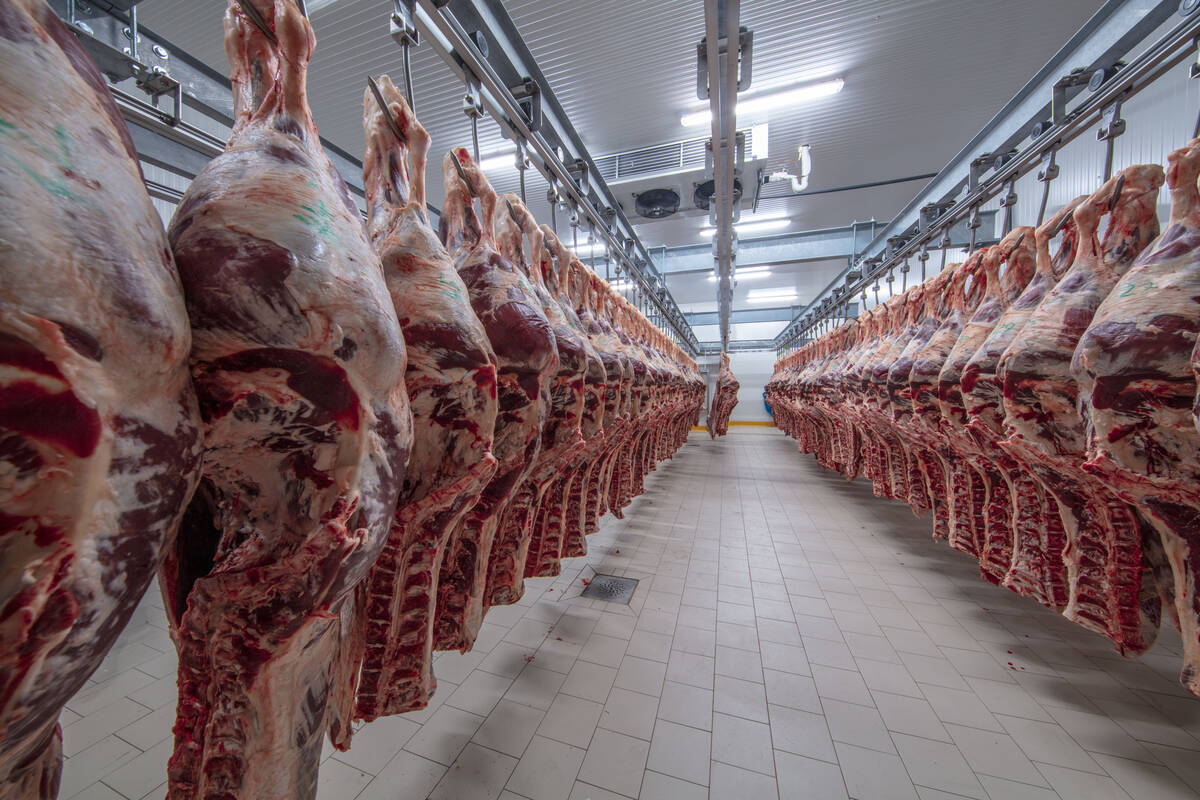After years of difficulty caused by economic sanctions, suppliers are hoping a nuclear deal will make it easier to win lucrative contracts to sell wheat, sugar and other food to Iran.
Iran was never barred from buying food, but EU and U.S. financial measures have made trade more difficult for the past two years by hindering payments and shipping.
A breakthrough preliminary deal reached Sunday in Geneva leaves most sanctions in place for at least the next six months while a permanent deal is hammered out, but some sanctions will be eased. World powers involved in the deal agreed to “facilitate humanitarian transactions.”
Read Also

Argentina’s beef export revenue reaches record in 2025
Argentina’s beef export revenues hit a record $3.7 billion (C$5.0 billion) in 2025, up 22.3 per cent from the previous year, the country’s economy ministry said on Friday.
Canada’s foreign affairs minister John Baird said Sunday the federal government would evaluate the deal but its sanctions on Iran, including those on financial services, transactions and investments, remain “in full force.”
Activities for providing food, medical supplies, medicine and/or water purification equipment are exempt from Canada’s sanctions.
Private Iranian importers have returned to the international market in recent days for the first time in two years, seeking between 300,000 to 500,000 tonnes of wheat for flour making, trade sources said.
The sources said they expect Iran to buy grain heavily to build up food stocks in the six-month period.
Top global agribusiness groups such as Cargill and ADM and others such as Swiss commodities trader Glencore Xstrata have been among the dominant players in Iran’s food trade.
Those three firms confirmed they sell agricultural products to Iran, and said the activity was in compliance with sanctions.
The global food giants are now expected to be joined by mid-size trading houses in the European Union, Black Sea region and Turkey, trade sources said. The sources declined to identify the companies involved as deals were still in the works.
“More companies are dusting down their Iran file and it is definitely on the menu for many,” said one European commodities trade source looking at possible deals after several years.
“The smart thing is to already establish or resume ties. If conditions improve, Iran should have more suppliers to tap.”
The growing interest from prospective sellers has already cut the quoted cost of wheat, with Black Sea origin wheat to Iran estimated at $290 a tonne, down from $297 a tonne last week, meaning millions of dollars in potential savings (all figures US$).
“As we go forward the sanctions will ease and you will see a lot more players in the market, a lot more buyers coming up — people who have not been there but who are trying to get into the Iran business,” one European trader said.
Rebuilding wheat stocks
Even though selling food to Iran is legal, some small and medium-sized firms have worried that they might have trouble getting paid, arranging shipping or financing deals because of the extra vigilance banks are required to exercise.
“Any perceived erosion of the sanctions regime — even if minor — will almost certainly make Iran’s task of importing commodities easier,” said Torbjorn Soltvedt of risk consultancy Maplecroft.
Grain traders expect heavy purchasing by Iran to rebuild its wheat stocks for bread making.
“Iran needs a lot of wheat and other food and is likely to use the suspension of sanctions to get big purchases done and shipped in case the political settlement does not last,” a German trader said.
Earlier this year, Iran snapped up more than one million tonnes of wheat from international sellers in a bid to boost grain reserves. The process is usually slow, with Iran relying on a network of front companies and agents to broker deals.
One European trader said it was probably still too early for a rush of new deals: “The fact that the agreement has been signed is very positive to the business environment. A lot of people will scout around and ask for quotes in anticipation that trade will come up, but I think the actual trades will be about three months down the line.”
Poor domestic harvest weather could increase import demand.
“Satellite weather data shows Iran has had dry weather which would have a negative impact on its wheat and other crops,” another trader said. “This means people are expecting big imports to continue in 2014.”
Banking freezes and currency pressures caused by sanctions have meant Iran’s wheat buying has been concentrated almost entirely in the hands of the state purchasing agency, the Government Trading Corporation (GTC), with private buyers absent from international markets.
“Iranians have always argued it is the job of the private sector to keep the country running and GTC should be the buyer of last resort,” a trade source said. “They would rather see that job going to commercial interests. It is still early days yet on whether they can pull it off.”
— Jonathan Saul and Michael Hogan report for Reuters from London and Hamburg respectively. Includes files from AGCanada.com Network staff.














